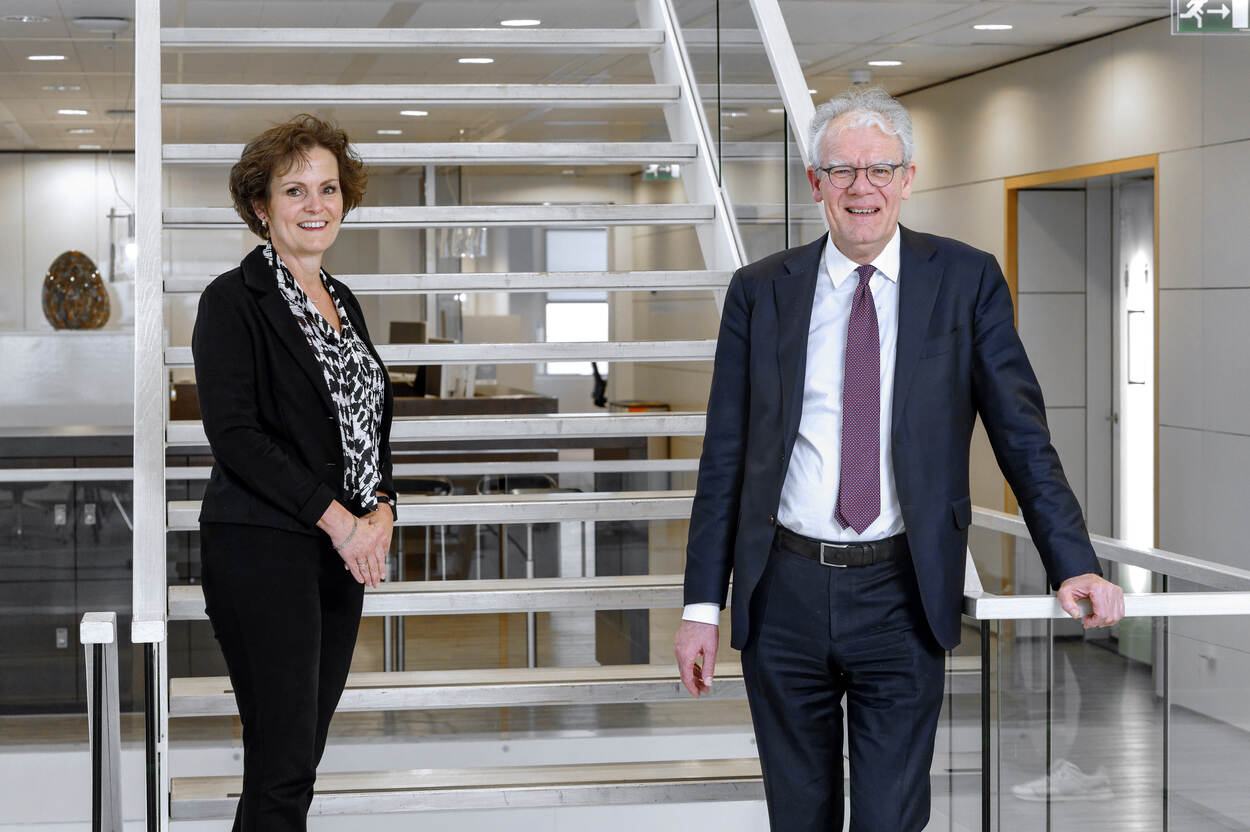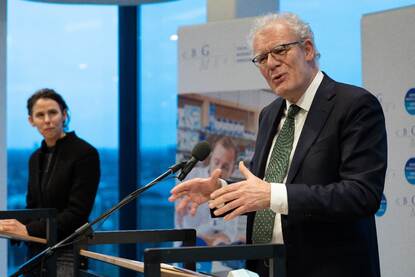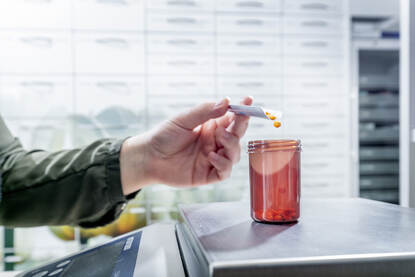The year 2021 was, inevitably, dominated by the COVID-19 pandemic. Extensive effort was devoted on many fronts to assessments and recommendations on coronavirus vaccines and medicines. And yet there have also been many developments in other areas. Director Paula Loekemeijer and Chair Ton de Boer look back on the year and ahead to the future.
Looking back on 2021 also means looking ahead
“General public awareness of the MEB increased significantly in 2021, in relation to issues such as the coronavirus vaccines and medicines and reports of possible adverse reactions. This brought the organisation to the public’s attention”, says Paula. “The Board and Ton himself came into view in the media, as did a number of colleagues. We also actively shared much-needed information on our social media channels and website. The statistics confirm this: the MEB website is one of the top 15 in the list of 1,750 government websites, with an average of over half a million visitors per month.”
Ton: “We had of course already launched initiatives in recent years to raise awareness of who we are and what we do. But COVID-19 really accelerated this process. I am proud of this visibility. It allows us to show what we do, even beyond COVID. And that’s important, because it helps us to boost confidence in medicines and demonstrate the added value of our role.”
Information and disinformation
Positive coverage of the MEB’s work in recent years has also increasingly had a downside, particularly when it involved COVID-19, in the form of criticism, misinformation and disinformation. Ton: “For us, providing accurate, independent information is one of our key tasks. A distinction can be made between disinformation (deliberately inaccurate information) and misinformation (information shared due to a lack of knowledge). As a counterweight to the latter category in particular, we get the facts straight, supported by science. We do this during events such as press conferences and COVID-19 consultation hours. But also in direct contact with patients and consumers.”
Here, it is important that we stick to our role, Ton is keen to stress. “We are about the efficacy, quality and safety of vaccines and medicines. That’s our main task. Naturally, we also work with our chain partners and other stakeholders. In some cases we have taken the lead. We have done this because, as Medicines Evaluation Board, we also contribute towards decision-making in Europe on the authorisation of medicines and the monitoring of adverse reactions and risks. But we have always strictly ensured that we stay on task.”
Paula: “The provision of reliable information about medicines and vaccines is certainly part of that task. It takes a lot of time and extra effort, but it is also very rewarding. It gives me a sense of satisfaction to look back on what we have achieved.”
Cooperation
Ton has already mentioned cooperation with chain partners and other stakeholders. This cooperation also stands out for Paula. “Our relationships with our chain partners have been strengthened considerably over the past year. Communication at both national and European level is becoming ever more rapid and efficient. It had to, given the circumstances. Contact with bodies such as the Ministry of Health, Welfare and Sport (VWS) and the Netherlands Pharmacovigilance Centre Lareb has both intensified and strengthened. We have been able to complement each other well in this collaboration, precisely by sticking to our own roles.” Outside the chain, too, we have explicitly sought to build bridges with the parties we work with. One specific example is the Central Chemists Bureau (Centraal Bureau Drogisterijbedrijven, CBD), with which collaboration was further formalised in 2021.
A key group with whom effective dialogue is essential is marketing authorisation holders. As Ton explains: “We have also been in close contact with this group in the past year. They have done a lot of hard work in relation to coronavirus vaccines and medicines. Work that we have facilitated, for example with scientific advice and rolling reviews. The rolling review process is just as in-depth as the standard review process, but at a faster pace.” “A lot of effort also went into improving contact channels in 2021, as well as our availability to answer enquiries and in relation to current procedures”, Paula adds.
Collaboration also took place at a scientific level. “We are involved in a number of studies and other scientific initiatives”, explains Ton. “The science policy presented this year, with eight cross-dossier themes, also helps us to give direction to our work.” External cooperation is an essential part of this process. As Ton explains: “We seek connections with the network, from businesses to network organisations of pharmacists or patient associations, but of course also with academic institutes. In 2021, as in previous years, a group of doctoral candidates worked at the MEB alongside their PhD studies. This is a positive outcome of our external cooperation activities.”

Medicines used better
Various studies have shown that pictograms help to make information on medicines easier to understand. This, in turn, helps to ensure the proper use of medicines. The MEB therefore introduced a new pictogram policy in 2021: a positive list of warning pictograms on the outer packaging of medicinal products. The pictograms relate to pregnancy, breastfeeding, alcohol and driving. This is part of Policy Document MEB 6: Labelling of pharmaceutical products.
Over the next year we will work with information providers, pharmaceutical companies and advisory parties to explore the options for developing a uniform set of pictograms.
New Veterinary Medicinal Products Regulation
For the last year, every staff member at the Veterinary Medicinal Products Unit (VMPU) has had one very important date in their diary: 28 January 2022. This date marked the introduction of the new Veterinary Medicinal Products Regulation and the Regulation on Medicated Feed. “VMPU did a huge amount of work in preparation for these new regulations, both throughout 2021 and long before that. All the while continuing with their normal work as usual. A fine example of teamwork”, Paula emphasises. “By VMPU staff and various others within both our own organisation and within the Ministry of Agriculture, Nature and Food Quality who contributed.”
The new regulations set out all rules on veterinary medicinal products at the European level. Rules governing aspects such as applying for marketing authorisation, manufacturing, production and import of raw materials, trade and distribution, use of veterinary medicinal products, reporting and analysing adverse reactions. As well as inspections of all these aspects. “These new regulations are designed to simplify the rules for pharmaceutical companies that develop veterinary medicinal products, and to lessen the administrative burden. Thus encouraging the development of innovative veterinary medicinal products”, Paula explains. “The regulations also impose new rules on the use of antibiotics, to reduce the risk of resistance.”
Here, too, we have seen that engagement by the organisation produces results. Paula: “The VMPU organised a number of online sessions to update pharmaceutical companies on the regulations. These sessions proved hugely popular and many questions about the new regulations were discussed. When I see the role the VMPU is playing in both the Netherlands and Europe in the implementation of the regulations, and all the activities organised for the stakeholders, I feel immensely proud.”
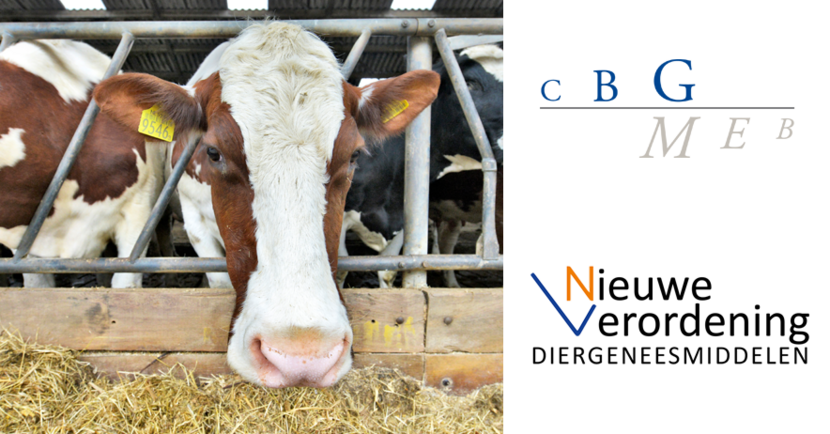

Notification of expected temporary supply problems
The MEB coordinates the Medicine Shortages and Defects Notification Centre together with the Inspectorate for Health and Youth Care. The number of notifications of expected supply problems in 2021 was around the same as in 2020. The previous years’ growth in the number of notifications therefore appears to now be stabilising. The number of different medicinal products for which supply problems were reported is down by 12% compared with the previous year. Production delays and increased demand were once again the main cause of supply problems last year.
A notification does not necessarily mean that a shortage will actually occur. “Companies give notice of expected supply problems at least two months in advance. They are also increasingly reporting the risk of a supply problem. There may be no subsequent disruption to supply or the expected supply problems may be adequately dealt with by stocks still available in the chain”, explains Ton. “Where we identify that a product shortage might arise, we explore potential solutions to avoid this shortage.” A solution is for example a medicinal product from another manufacturer that contains the same active ingredient, or temporarily permitting packaging from other countries.
List of medicinal products for which substitution is undesirable
Work on the ‘List of medicinal products for which substitution is undesirable’ was completed in March 2021. “We produced this list at the request of the Ministry of Health, Welfare and Sports. It is important that this list now exists, and we hope that it will help to prevent serious clinical problems resulting from the substitution of medicinal products”, says Ton. The Ministry of Health, Welfare and Sport will now determine how the list will be used and what the next steps will be. “For us the project is now complete. Now it's up to the parties involved to use the list in the right way. Our recommendation is that the list is reviewed and updated each year.”
Impurities in medicinal products
Impurities in medicinal products has been a recurrent theme in recent years. “It’s a topic that’s been on the agenda for several years. We had already had many international consultations on this theme, including a number of recalls of medicinal products found to contain nitrosamines in 2020. This was also the case in 2021. This substance was detected in Champix (varenicline). The result was a product recall and temporary distribution stop. The knock-on effect was a shortage of the product, which is used to aid smoking cessation. In 2021, we introduced a Europe-wide plan in which we ask the industry to implement structural risk control measures and analyses. The aim is to keep the amount of these impurities in medicinal products below the thresholds. Although the risk of serious adverse reactions is very low, we believe that medicinal products should be of a high quality.”
‘Balance in turbulent times’
The heading of this chapter talks about both looking back and looking ahead. This is also something that we did at the annual MEB Day in November. Under the title ‘Balance in turbulent times’, we looked back with speakers from the medical, pharmaceutical and administrative field on an eventful six months. We also looked ahead to the future. Ton summarises the event as: “A day on which we discussed the lessons we can learn from the COVID-19 pandemic, and the opportunities we can identify for the future”. “For instance, whether there is scope in the future for the introduction of rolling reviews for new medicinal products at a European level. But also discussions on the opportunities presented by remote clinical trials, clinical studies in the home environment, for which lockdowns have acted as a catalyst.”
“An inspiring day”, Paula agrees. “With many new insights and interesting discussions. We can say that we have learned a lot from these ‘turbulent times’, which we can translate into future opportunities.”
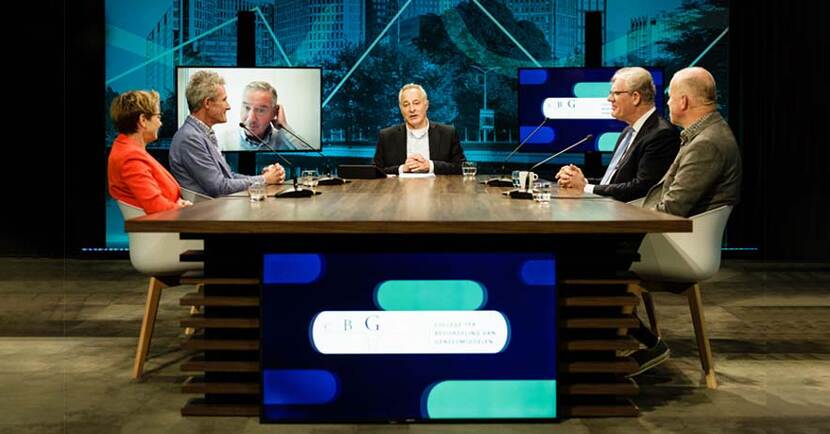
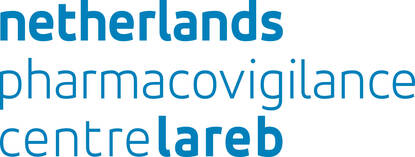
Adverse reactions
In addition to the wide-ranging online MEB day, another online gathering featured on the agenda earlier in the year: the annual MEB Science Day in February 2021. Academics, pharmacists, doctors, scientists, patients and representatives of the pharmaceutical industry and government institutions listened and contributed during a day that was dedicated to the 25th anniversary of pharmacovigilance. “A wonderful opportunity to focus on all the developments in that field. But the topic was more timely than ever in 2021. Pharmacovigilance had a high profile, thanks in part to the coronavirus vaccines and medicines”, Ton states. “There were a large number of reports of potential adverse reactions due to the huge scale of the vaccination programme. That's only right, as we want to know as much as we can about the adverse reactions caused by the vaccines. I always stress that a report is not an adverse reaction. It is a suspected adverse reaction spontaneously reported by a care provider or someone who has received a vaccination. It is only an adverse reaction if there is a causal relationship. We made a number of updates to the coronavirus vaccine product information. Most of these changes related to very rare adverse reactions. This is proof that the European pharmacovigilance system works. But it is precisely in such rare cases that transparent, substantiated and nuanced communication is so important. It only increases the level of trust”, according to Ton.
Identifying which reports are actually adverse reactions requires a great deal of intense cooperation within the chain. “With the Netherlands Pharmacovigilance Centre Lareb, but we have also played our part at European level. Together with the European Pharmacovigilance Risk Assessment Committee PRAC and other medicine agencies in the European network”, Paula adds.
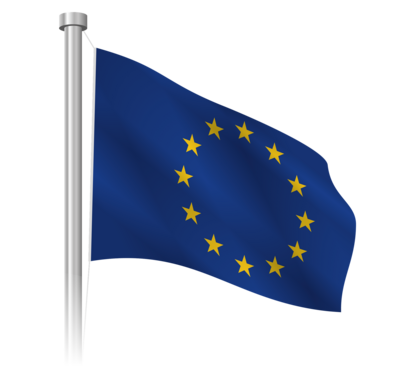
Prominent role in Europe
The MEB has a prominent presence within this European network. Paula: “We actually ranked in the top 5 in all areas in 2021, if you look at rapporteurships and co-rapporteurships. For instance, we played an important role in the assessment of medicines and vaccines in Europe. This is a mark of the confidence placed in us by the other countries. The completion of Brexit on 31 December 2020 increased our role further. Congratulations are due to all of our staff.”
The Netherlands is also well-represented on the various European scientific committees. “A number of our employees are members of the EMA’s various committees and working parties as independent content experts”, explains Paula. “They are not always visible, but they have a hugely important task that they are fulfilling on the European stage!”
The Netherlands’ prominent role also has other implications. Paula: “Allocating the rapporteurships and co-rapporteurships seems to be getting more and more difficult. We are seeing a trend whereby assessments are increasingly assigned to a small number of countries. The rest of the member states look on as ‘concerned member states’. The point is that rapporteurships involve a lot of work, for instance if you also take into account all subsequent variations. That makes it difficult, also because Europe does not provide adequate funding for these activities. I hope that we can find a sustainable solution to this problem at the European level.”
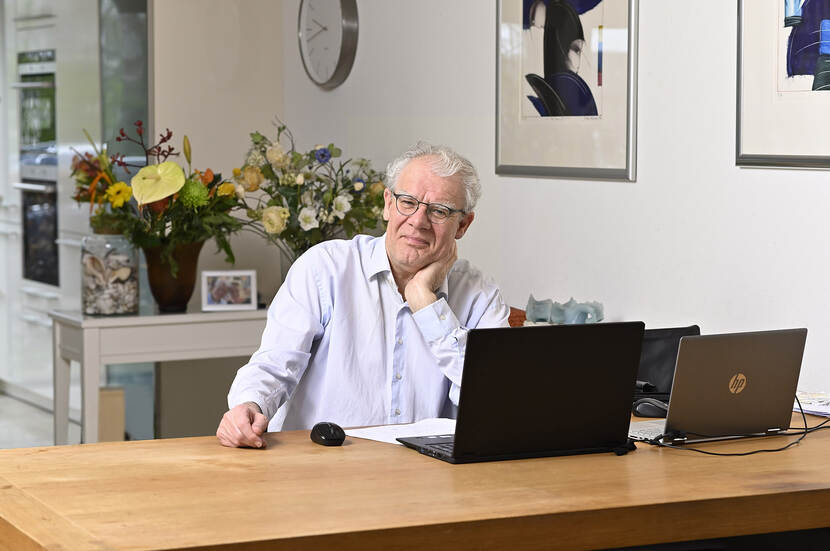
Sustainable and future-proof MEB
It is in the interests of the Netherlands to have a medicines authority that is able to look forward sustainably. In other words, an MEB that can continue to carry out reliable assessments in a sustainable manner. Paula: “This is why the agency has started to undergo a transition in the last few years. The agency has grown substantially in recent years. The same can be said of our responsibilities. Naturally, this has implications for the organisation and its management. We want to ensure that we have the organisation in order at all levels. Both organisationally and financially. So that we are able to make strategic decisions in terms of content and to invest in sustainable plans for the future.”
In order to achieve a sustainable and future-proof MEB, a number of key objectives have been formulated for the organisation, Paula continues. “We want to focus on our core tasks, ensure that we are in control and continue to develop our expertise. Now, we are translating these topics into how we work, how we structure the organisation and how we collaborate. It's a process that we started in 2021 and that will take shape in 2022.”
As Ton explains: “I am seeing the new organisational structure emerge, with a divisional model and a new senior management team for the agency. While the work continues as usual. The assessments continue, as does the high level of quality, despite all the extra work the agency is carrying out.”
As the head of this new senior management team, Paula is also a new face within the organisation. She started on 1 May as Director of the agency and Secretary of the Board. In this role she succeeded Hugo Hurts, who retired last year. What struck her from the outset? “The enthusiasm of the entire MEB team”, she says with conviction. “This is an organisation with a workforce that really goes all out to achieve results, in other words effective and high quality medicines and vaccines. It did of course involve working from home, which was the norm once again in 2021. Not an ideal situation. And yet the intrinsic motivation of everyone here was still clear to see. The public interest always comes first! It’s an organisation that allows me to look forward with confidence.”
